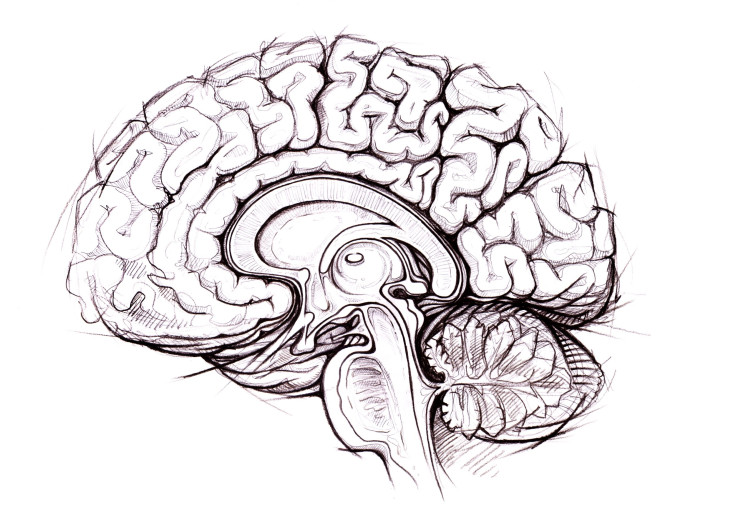Treatment vs. Punishment: Poll Finds Americans Prefer Rehab Over Jail For Drug Offenders

Attitudes toward drug crime may be changing. Two-thirds of Americans would like to see illegal drug offenders enter programs that focus on rehabilitation rather than incarceration, a recent Pew Research Center poll reported. The poll conducted telephone interviews with 1, 821 adults and is the first large survey of American opinions on drug policies in 13 years. Such a survey reflects the wider issue of whether public perceptions about drug abuse are shifting. Do we increasingly perceive addiction as a public health issue worthy of medical help, or as a crime deserving of punishment?
According to the poll, the majority of Americans continue to view drug abuse as a serious problem — just as they did a decade ago. What’s changed, however, is the way that most Americans believe we should handle the crisis.
Sixty-seven percent of those surveyed believe the Obama administration should emphasize treatment for people who use illegal drugs rather than punishment. Only 26 percent believe jail time should be emphasized. And the percentage of people who believe governments should do away with minimum mandatory sentences for drug crimes increased from 47 percent in 2001 to 63 in 2014. This shift in opinion addresses the wider question of how to deal with drug offenders in a way that will best help them and our communities rather than simply lock them away.
Last month, the U.S. Sentencing Commissioner proposed to decrease the recommended sentences for federal nonviolent drug crimes. The proposal reduces the average prison sentence by 11 months and — because it would apply to nearly 70 percent of defendants in federal drug offenses — it would cut approximately 6,550 prisoners from the system in the span of five years.
The Commissioner’s proposal is accompanied by other moves in government that hope to reform sentencing for drug criminals. The Smarter Sentencing Act is a bill that would cut minimum existing sentences in half and also let judges use their own discretion before giving jail time to lower-level defendants — in hopes of reducing the cost of incarceration and overcrowded prisons.
But while Congress deliberates, the debate of jail time vs. rehab has been around for a long time. In 2012, New York University Psychiatry Professor James Gilligan makes the argument that prisons must be made places not just for restraint, but also for recovery. “The only rational purpose for a prison is to restrain those who are violent, while we help them to change their behavior and return to the community,” Gilligan said in The New York Times. He says there’s a difference between "punishment" and "restraint." Punishment is the infliction of pain on a criminal, which only teaches them to inflict pain on others. Restraint is more nuanced — it involves separating offenders from society, but in a place with the therapies (like psychotherapy, substance abuse treatment) to help them get better as future members of the community.
The public’s shift from jail to rehab also highlights another possible shift: drug abuse seen as an issue with brain biology rather than a crime. It was in 2011 that UN Secretary General Ban Ki-moon said at World Drug Report launch, “Drug-dependent people should not be treated with discrimination; they should be treated by medical experts and counsellors. Drug addiction is a disease, not a crime.”
Scientific research has long proven how drugs affect the brain and with it, an individual’s ability to reason clearly. Medical professionals understand that substances alter neural networks and in the case of relapse, many believe individuals are at the mercy of biology despite their desire to change. A 2013 study found that the brains of former addicts were still wired for addiction in the same way as those of current users, despite years of abstinence.
“Incarceration does not work; plain and simple,” CRC Health Group, a treatment center writes on its website. “In fact, statistics reveal that many addictions actually grow while in prison. The availability of drugs and the need (desire) to escape leads drug addicts to use more and for those not exposed to drugs in the ‘outside world’ to begin using. With no treatment available and drugs easily obtained, how can we expect our prison population to achieve and maintain sobriety?”
In 2012, Gil Kerlikowske, the director of the White House’s Office of National Drug Control Policy said of the issue, “Drug addiction is not a moral failing on the part of the individual, but a chronic disease of the brain that can be treated.” Kerlikowske believed that incarceration avoids the root of the problem because it punished rather than treated.
It was about 40 years ago that former President Richard Nixon declared a “war on drugs.” With this year’s poll reports, it appears Americans are starting to perceive addiction as an issue of public health rather than one of law enforcement.



























